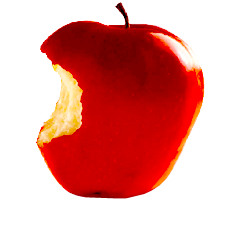iPhone Dev Chronicles
I’ve spent a little more time this weekend learning Objective-C and Cocoa programming for the iPhone. It looks like sqlite3 is the format of choice for structured data storage on the iPhone, so I’ve been working on stuffing the USDA sr20 food dataset into an sqlite3 format. Using Apple’s examples, I’ve figured out how to do basic lists and navigation bars. So far I have a simple app that loads the food names and displays them in a single scrollable list.
Now that I’ve figured out the basic mechanics, comes the hard work — design! I can’t just do a straight port of CoM to the iPhone — it just won’t fit! And using only fingers to navigate and enter data adds a further challenge. I’ve got to come up with the core functions and design each screen carefully. It also doesn’t make sense to track the complete set of nutrients since there’s not much screen space to display it all anyways.







What an awesome program to have on a hand-held device though. I don’t have an iPhone but if I ever did get one, a diet tracker would be the first app I would put on it. In fact a diet tracker might be a good reason to get an iPhone in the first place! I think I can justify the cost to myself and my wife… Hmmm…
My ipod touch awaits your offering.
What if: You could export your personal foods from your regular PC/MAC based COM to your iPhone app? Then, the items that we use the most are with us on the portable. We can always access the USDA site from the Safari web browser for new foods through a link in COM (though it would surely be nice to then be able to import that food/nutrient needed from that database into the portable COM). Then our own personal details are with us always, but the bulk of the app is still based on our home computer. We could then sync the home based app from the iPhone app when we needed to…
This is what I’ve wanted from a PDA device. Something that is synced with my info immediately, I don’t have to recreate it from scratch (since I’ve done that multiple times on my home computers)
Great work BTW
Deborah
I have worked with my share of “new” and “exciting” development tools over the years (Forth, Pascal, Algol, ADA, PL/1, etc.) It seems that the simplest tools that have the widest acceptance and support are the ones that survive. I recently converted to C a 20-year old PL/1 program that performed a Reverse Polish stack evaluation. The old program has a new incarnation that will probably outlast the original.
The new and specialized languages of today are more likely to become obsolete than old programming languages like C which probably will take us to the end of the 21st century.
With regard to COM on the iPhone, you could experiment with a “light COM” that acts more like a dumb terminal, rather than a distributed application. Only some key functions should be performed on the iPhone, and the database searching and heavy computation could be done by an online server. This type of application could also be prototyped on a PC to work out the interface before porting to the iPhone.
Cron-o-meter + ipod Touch/Phone = Killer App
Need I say More?
Oh and by the way, I’ll be a beta tester if you need one!
Seen the this? Wonders of cocoa and diet
http://www.nsobjects.com/
Hello,
I am interesting in buying traffic for our casino/poker brands. Can you please get back to asap. I want to close a lucrative deal with you.
Hey,
I will be a beta tester too! I used to write ObjectiveC years ago. Love to see an iPhone app that just lets me enter my intake even.